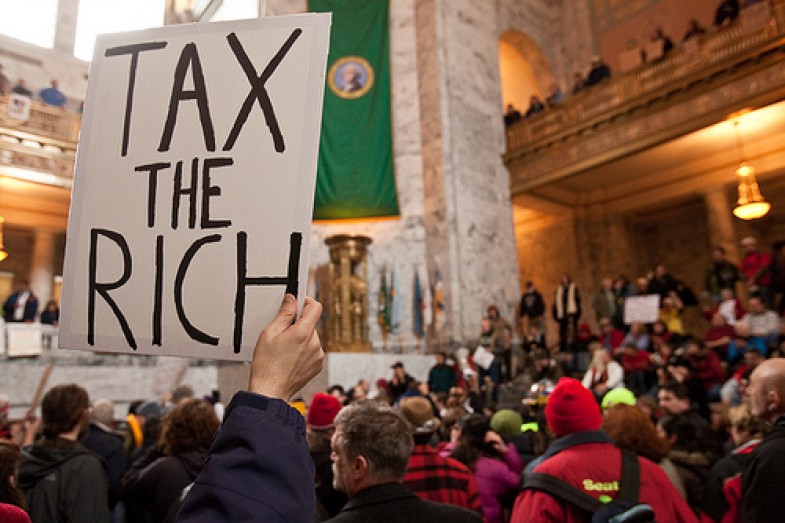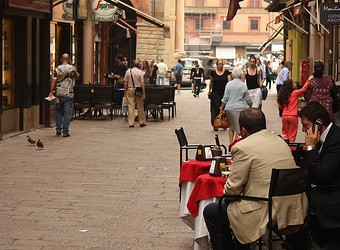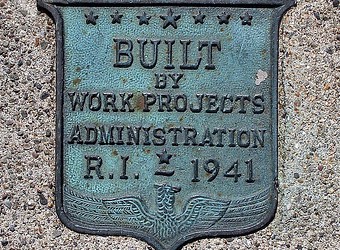Here’s some great news in these tough times! Everyone has a long lost aunt who’s giving us an inheritance of incalculable value: clean water, public services, the Internet, parks, scientific knowledge, fashion styles, and much more.
The name of our aunt is the commons—and while she is metaphorical, the commons is as real as the Great Lakes, Route 66, the National Weather Service, your favorite recipes, the local fire department (either volunteer or municipal), open source software, libraries or the latest dance steps.
The commons means everything that belongs to all of us, and the numerous ways we work together to share these gifts and protect them for future generations. Although few of us ever stop to think about the commons, it remains central to our lives in numerous ways—from the tap water we brush our teeth with in the morning to the fairy tales we tell our kids at night.
The natural commons makes life itself possible thanks to air, water, biodiversity and DNA. The cultural commons makes human civilization possible through the sharing of knowledge, language, inventions, stories and art. The social commons makes our modern way of life possible through educational institutions, medical expertise, engineering know-how and communications tools. Even the market economy depends on the commons for the natural resources and human capital that drive its profits, as well as the legal and regulatory systems without which it would fall apart.
While this sounds like an arcane conceptual framework for social philosophers to ponder, the commons actually offers a practical toolkit to fix serious problems arising from recent increases in social inequity and environmental damage.
Here are some examples of how the commons can be applied in the real world.
*The immense collaborative possibilities of the Internet, which was created with public money and functions as a commons where ideas and information are widely shared, has pushed innovation forward in many fields by emphasizing cooperation over competition. Indeed, many observers credit the rise of the World Wide Web with sparking a new appreciation of the commons in the off-line world, especially among young people.
*Neighbors eager to maintain open space, affordable housing or environmentally sensitive areas are setting up land trusts—a form of commons-based community ownership distinct from both private property and government management.
*Another promising commons-based solution is already in place in one of the brightest red states. North Dakota, reliably Republican in presidential elections since 1964, operates a state-owned bank to serve the common good, which some economists cite as one reason the state is weathering the recession better than almost any other in the union. Lawmakers in Oregon, Louisiana, Virginia, Arizona and Illinois and eight other states are considering starting their own.
That’s the good news. The bad news is that the commons is now under threat like never before.
In some cases, what belongs to all of us is being privatized—pickpocketed, really—for the benefit of a few. We see this in the broadcasting industry where since the 1980s owners of radio and TV stations shoulder almost no responsibilities to the public interest in return for the fortunes they reap from our public airwaves—a free ride now being sought by web providers who want to shred rules that ensure everyone equal access to the Internet.
In many places around the world, private firms are gaining control of public water systems. But when rewarding shareholders prevails over serving the public as the chief aim of a utility, the price of water goes up and the quality of service goes down. According to Maude Barlow, a former advisor to the UN Secretary General on water issues, a growing list of cities—from Paris to Bolivia to Atlanta— have ended experiments in water privatization after experiencing disastrous results. Last summer Italians voted overwhelmingly to overturn Premier Silvio Berlusconi’s plan to privatize public water supplies.
In other less dramatic but no less consequential cases, the commons is simply neglected until it becomes less valuable for everyone. The branch library shuts down, for instance, and the recreation center at the park is only open two days a week. This trend is unfortunate any time, but especially in the midst of a wrenching recession when many families can’t afford private internet service, new books, gym memberships or special training for their kids. More suffering is in store with each new round of budget cuts as essential elements of the commons like education, law enforcement, health care, social services and transportation are dismantled or sold off.
The commons plays a key role in what we think of as the American Dream—which implies not only economic advancement but also traditions of quality public services, good education, a clean environment, strong communities, public participation, and a sense that every kid growing up here deserves a fair shake.
But much of this is being dismantled right now as tax grabs by the wealthy and balanced budgets become higher priorities than the common good. A casualty of this may be Americans’ exceptional optimism for the future. It’s hard for middle- and working-class Americans to keep this dream alive for their kids when they see public schools being shortchanged, public universities hiking their tuition by double digits, essential public services being slashed right and left, and homeowners drowning in debt while bankers who created the foreclosure crisis making out like bandits. Meanwhile the richest two percent of Americans enjoy skyrocketing wealth, income and spending sprees.
If we continue to plunder the commons so a privileged few can rack up record profits and give nothing back—we can no longer think of ourselves as a land of opportunity. When the vast majority of people are cheated out of their inheritance—once given to us through traditions of social cooperation and tax money being put to good use for everyone—then this will be a much different country than most of us grew up in.






